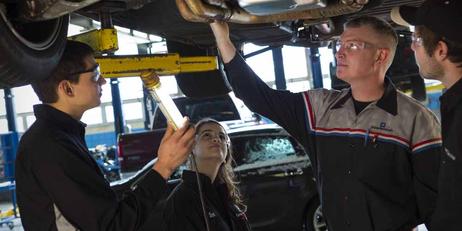In today’s difficult job market, community college students looking to position themselves for career security and success have an exciting new set of options to consider: programs leading to associate’s degrees or certificates in sustainable energy technologies.
A Growing Industry
Just a few years ago, sustainable energy was more of a dream than a reality. Today, sustainable energy is emerging as an industry in its own right – one that demands trained, competent workers. The American Recovery and Reinvestment Act of 2009 (President Obama’s economic stimulus package) provides money for “solar farms, wind turbines, electrical grid updates, mass transit, and the weatherizing and retrofitting of buildings,” according to Business Week. By the estimates of some environmental groups, this spending is expected to produce 1 million to 1.5 million new jobs.
Reporting on the then-emerging trend in 2008, the New York Times articulated that national starting salaries for sustainable energy workers range from $35,000 to $45,000 for graduates of two-year degree programs.
Fortunately for college students who are attracted to the growth potential and solid starting salaries in this industry, community colleges are beginning to offer more programs in two-year degrees or certificates for prospective sustainable energy industry workers.
This video reports on Renewable Energy Program at Hutchison Community College.
Sustainable Energy Degree and Certificate Programs
Across the country, community colleges are offering niche programs that can jumpstart your career in






















